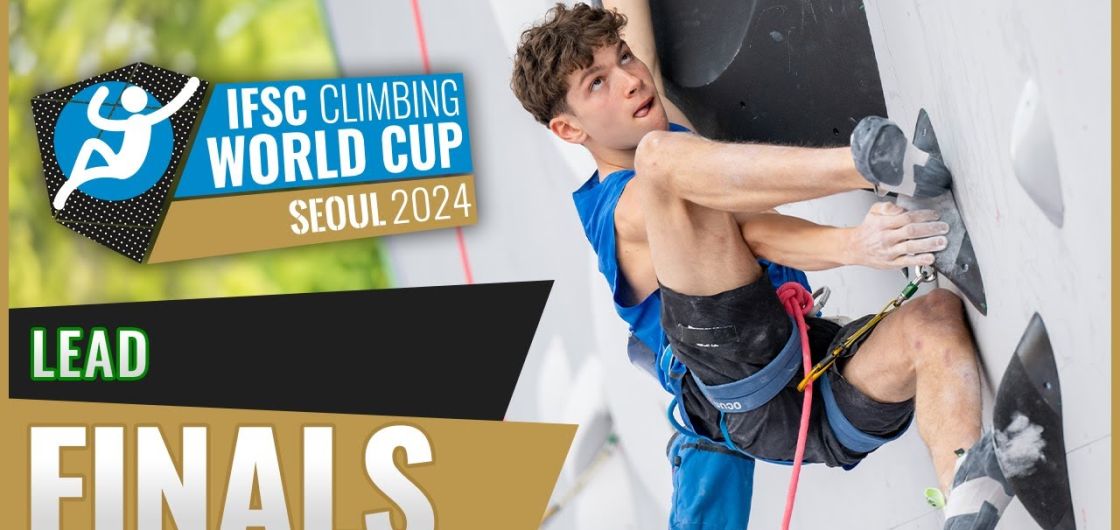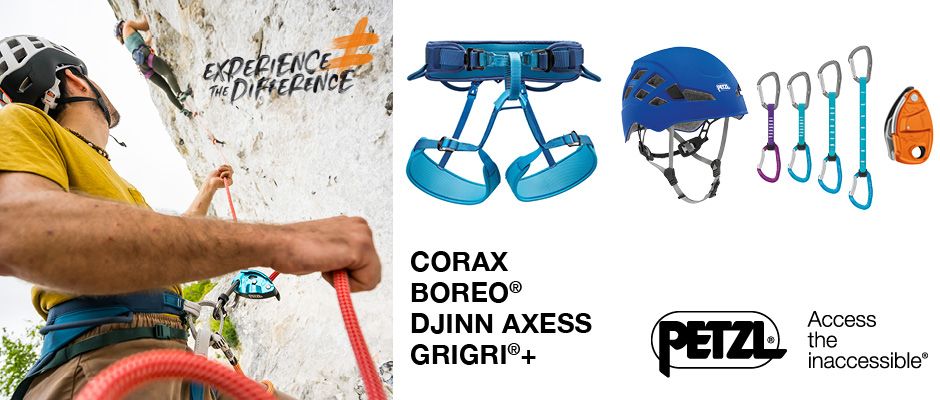IFSC World Cup Seoul 2024 + Overall Champions
The IFSC World Cup circus rolled into Seoul, Korea, for the final leg of this year's series. It has been a huge year for competition climbing, with the Paris Olympics the undeniable epicentre, the tail end of the season has seen a decline in participation by the top athletes and a decline in form for some who have kept competing. Nevertheless, in Seoul there would be Speed, Boulder and Lead events, a chance to finish the major competition calendar of the year with a bang and to crown overall champions for the World Cup series in all disciplines.
In the Men's Boulder, hometown heroes Dohyun Lee and Jongwon Chon both made the final, to the crowd's delight, while a few big names missed out, with Sorato Anraku and Tomoa Narasaki of Japan both failing to progress from the semifinal round. Tomoa's brother Meichi qualified top, while Lee scraped through in sixth place just bumping out Mejdi Schalck and Paul Jenft of France by just one attempt to zone. Attempts to zone again played a part in the final, where Dohyun Lee beat Max Milne (GBR) by just one attempt to zone. Lee flashed to the zone on all four problems, while Milne thought he had won the comp by getting a top on Boulder 4 in the required three attempts, because he didn't make the zone on his first attempt on that problem, Lee secured the win. Third behind Milne was Sohta Amagasa (Jap).
Despite missing the final for the first time in a Boulder event this year, this didn't ruin Anraku's claim on the overall title, he won again after winning last year in his maiden year. Team Japan's dominance in the men's fields showed in the rest of the results as the top four all were Japanese (Meichi Narasaki in 2nd, Tomoa Narasaki was 3rd, with Sohta Amagasa 4th), with the highest ranked next athlete Toby Roberts (UK) in 5th. Interestingly, there was yet another Japanese athlete in the top 10, which makes the IFSC's incoming restrictions on the number of athletes any one country can enter in an individual competition seem like an anti-Japan policy.
In the Women's Boulder, Annie Sanders (USA) finished on top. While the field was slightly weakened, she'll still be thrilled with her first ever win and she managed to beat some big names like Miho Nonaka (JAP) and Natalia Grossman (USA). Second in the final was France's Zelia Avezou, with a great performance, while Erin McNeice (GBR) finished a barnstorming year with another podium. Grossman was clearly present to tie up the overall Boulder title, which she did, but seeing her battle through a clear shoulder injury carried over from the previous event and also what appeared to be a new finger injury did make you wonder if the IFSC are taking the necessary measures for athlete's safety and well-being. With the series win, her fourth in a row, Grossman moved to tie Anna Stöhr of Austria and Noguchi Akiyo of Japan with four trophies. Only France’s Sandrine Levet has won more, with five. Australian Oceania Mackenzie just missed out on making the final in Seoul, but she'll be thrilled to have won second place in the overall with consistent results all year. Third went to Mao Nakamura of Japan.
On to the lead event, where Annie Sanders again put in a strong showing, timing out on hold 45 on a long finals route. That was enough for third, while Erin McNeice was the other woman to make both finals, she timed out too, but behind Sanders and hometwon favourite Chaeyun Seo, was finished fourth. Ai Mori (JAP) and Jessica Pilz (AUT) had both looked tired after a long season in failing to qualify for the Boulder final, but each managed to top the final route. Of course, there's no more iconic duo than clock drama and IFSC events, with both athletes having their scores reduced due to timing out. In the final calculations, Pilz had been faster and was awarded a score of hold 48, with Mori granted second place. This also gave Pilz the double of the overall title in Lead, beating Janja Garnbret to the title (despite never beating Janja in any competition this year) through participating any more competitions. This was a popular win for an athlete who stormed onto the Lead scene with victories over Garnbret early in her career, only for a bit of a lull in performances lately as she has put increased focus on Boulder as well in order to win olympic success (which she did, with third in Paris). Ai Mori took bronze in the overall.
In the Men's Lead, Dohyun Lee again looked to thrill the home fans, but the finest of margins was this time against him. Both he and Anraku scored 45+, with Lee ultimately beaten on countback to the semifinal, where the Japanese athlete had a far superior performance. Third went to Shion Omata (Jap). To hammer home the point about limiting country's number of participants mentioned earlier, Japan produced more than half of the finalists in this event. Toby Roberts had already won the overall title with an unbeatable lead, but Omata pipped Anraku to second, the child prodigy unable to do a double-double and win both titles for the second year running. Having also lost olympic gold to Roberts, Anraku acknowledged the rivalry after the event and swore he'd be back even better for next year. Athletes from Team Japan made up six places in the top ten of the overall, for those keeping score.
In Speed, Xinshang Wang (CHN) took out the men's competition. This was enough to give him third in the overall, behind Italy's Matteo Zurloni in second and new world record holder Samuel Watson of the USA. New Zealand's own Julian David was 36th in the overall. For the women, China again produced the winner with Yafei Zhou. But it was her compatriot Lijuang Deng who won the overall after finishing fourth in Seoul. Poland's Natalia Kalucka was second, with Korea's Jimin Jeong securing third overall. Sarah Tetzalff and Abby Gebert of New Zealand were 38th and 39th, respectively.

